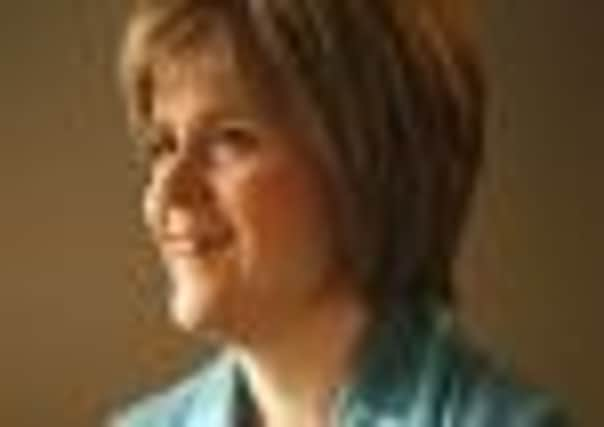Leaders: Higher taxes not necessary if MSPs make hard choices | Thanks for the Good memories


This sardonic observation is prompted by the latest academic paper on the financial burden upon Scotland of the welfare state, whether we are independent or have an enhanced form of devolution.
Professor David Bell, an Economic and Social Research Council fellow on the future of Scotland and the UK warns today Scots would face tax rises to pay for the growing welfare bill. His argument is that the benefits system costs more in Scotland than the UK, relative to population size. A massive increase in state pensions is looming as Scots live longer. If the welfare system, as currently established, is to continue, taxes will have go up.
Advertisement
Hide AdAdvertisement
Hide AdProf Bell’s conclusion is, in some ways, a statement of the obvious. We have known for a long time we face a ticking demographic timebomb. Politicians of all colours have acknowledged they can heard the ticking noise but have done little to try to prevent the inevitable explosion. Scottish politicians are no exception. Deputy First Minister Nicola Sturgeon has claimed Scotland would be a more social democratic nation after independence, prompting Labour’s Anas Sarwar to respond that the SNP “talk left but act right”, claiming only his party can deliver social justice. What all parties fail to do is to put flesh on their social democratic bones, a point Prof Bell makes in the conclusion to his paper.


That is something the politicians must address this side of the referendum, but there is another side to this coin which no-one, with the honourable exception of the Scottish Tories, has confronted. It is this: more public spending is not inevitable. Politicians have choices. Although they do not like doing so, they can cut spending if they have the guts and the political nerve to do so.
We have spent too long in Scotland debating what to spend money on and not enough on what we should not be spending money on. We are well-off for free public services – everything from eye-tests to bus passes to personal care. They were good to have in the good times, but can we afford them now? Can the council tax freeze, which will cost more than half a billion a year by the end of this parliament, be sustained? Can we make better use of the private sector in building our infrastructure? Should Scottish Water continue on the Scottish Government’s books?
All these options, and more, should be considered at the same time as politicians hint at raising taxes to spend yet more on our welfare state. It was that great Labour MP and socialist, Aneurin Bevan – a hero of Ms Sturgeon’s – who said: “The language of priorities is the religion of socialism.”
It is time for politicians on the centre-left, who espouse the old time political religion, to re-learn the language of priorities.
Thanks for the Good memories
He was the quintessentially British actor who starred in quintessentially British situation comedies, most notably The Good Life, playing quintessentially British characters. Richard Briers, whose death was announced yesterday, made us laugh. And we loved him for it.
It is a rare quality in an actor to be able to bring genuine joy to the viewers who watch you on the television screen with the subtle, understated manner that Briers perfected throughout his long career.
In his comedy roles he never shocked, he was never outrageous. If he ever resorted to swearing (though we doubt he did) it would have been of the mildest kind. We smiled our way untroubled through his portrayal of Tom Good alongside Felicity Kendal’s Barbara.
Advertisement
Hide AdAdvertisement
Hide AdHowever, we should remember there was more to Briers than light comedy, as his distinguished career shows. Like the greatest of comic performers he was an actor first, and a talented one.
He was a member of Kenneth Branagh’s Renaissance Theatre Company and played Malvolio in Twelfth Night, winning great acclaim for moving away from the safety of sitcoms to a new acting challenge.
Malvolio, King Lear, and Uncle Vanya followed as Briers proved there was more to him than playing the nicer-than-nice Tom, coping wryly with up-tight neighbours Margo and Jerry.
Yet for all of his theatrical triumphs as a straight actor it will be for The Good Life that Briers will be best remembered.
That was, of course, because of his brilliant performance, but also, perhaps, because it captured forever the spirit of a gentler age, one to which we look back now with a certain nostalgic longing.